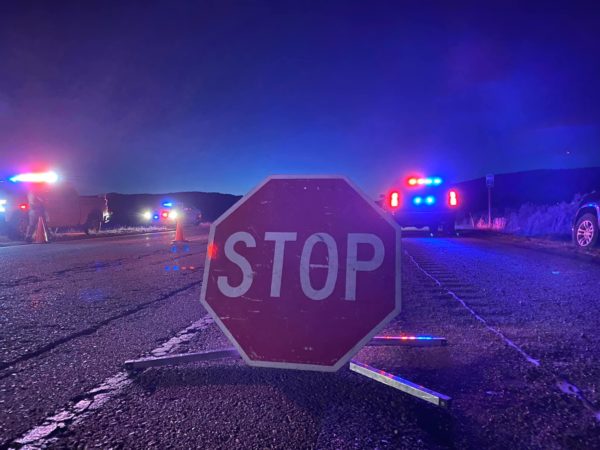
- Details
- By Native News Online Staff
WINDOW ROCK, Ariz. — On Friday, the Navajo Department of Health, in coordination with the Navajo Epidemiology Center and the Navajo Area Indian Health Service, reported a record-high 351 new Covid-19 positive cases for the Navajo Nation and five more deaths.
The total number of deaths is now 623 as of Friday. Reports indicate that 8,045 individuals have recovered from COVID-19, and 146,196 COVID-19 tests have been administered. The total number of positive COVID-19 cases is now 14,441, including five delayed reported cases.
The new record high for cases reported in one day exceeds the old record of 238 by 113 cases. The old record was reported on May 13, 2020.
“This is not only devastating, but it indicates that the uncontrolled spread of the virus is impacting all communities on the Navajo Nation and in nearby border towns and cities. It is time for a mask mandate for the entire state of Arizona – the growing numbers of cases outside of the Navajo Nation is having a devastating impact on our people and it’s evident with 4,471 new cases reported in Arizona," Navajo Nation President Jonathan Nez said.
On May 13, we had 238 cases reported in one day and today, we far surpassed that total with 351 new cases reported.
Navajo Nation COVID-19 positive cases by Service Unit:
- Chinle Service Unit: 3,122
- Crownpoint Service Unit: 1,563
- Ft. Defiance Service Unit: 1,476
- Gallup Service Unit: 2,299
- Kayenta Service Unit: 1,564
- Shiprock Service Unit: 2,099
- Tuba City Service Unit: 1,512
- Winslow Service Unit: 797
* Nine residences with COVID-19 positive cases are not specific enough to place them accurately in a Service Unit.
On Friday, the state of New Mexico reported 2,993 new cases of COVID-19, the state of Arizona reported 4,471 new cases, and Utah reported a record-high 4,588 new cases.
"This is happening all across the country, and we have always told our people that the safest place to be is at home here on the Navajo Nation. We have cautioned our people every single day. Everyone has to hold themselves accountable. If you do not have an emergency, if you’re not in immediate need of food, and if you’re not an essential worker that is required to report to work, then you are mandated to stay home. We have to do more and we have to take it upon ourselves to isolate the virus. When we move, the virus moves and spreads among the people,” Nez continued.
The Navajo Nation’s three-week stay-at-home lockdown is in effect 24-hours a day, seven days a week with the exception of essential workers, cases of emergencies, and to purchase essential items such as food and medication when essential businesses are open from 7:00 a.m. to 3:00 p.m. daily. The Navajo Police Department will increase its enforcement of the lockdown and will patrol roadways and communities to help ensure compliance.
All essential businesses are required to ensure employees and customers wear masks, practice social distancing, disinfect high-touch surfaces, access to hand wash stations, sanitizers and gloves, and limit the number of customers in any enclosed areas.
“All of us have to do more to fight COVID-19. We have more and more people becoming infected with this virus and losing their lives. Our health care system is struggling and may soon be overwhelmed. We have to do everything within our power to protect our children, elders, and those with existing health conditions. Please pray, be safe, and stay home as much as possible,” said Vice President Myron Lizer.
For more information, including helpful prevention tips, and resources to help stop the spread of COVID-19, visit the Navajo Department of Health's COVID-19 website: https://www.google.com/url?q=http://www.ndoh.navajo-nsn.gov/COVID-19&source=gmail&ust=1606008799136000&usg=AOvVaw1eWowyMLnt2oLkvMwUXRss">http://www.ndoh.navajo-nsn.gov/COVID-19. For COVID-19 related questions and information, call (928) 871-7014.
More Stories Like This
Native News Weekly (August 25, 2024): D.C. BriefsNative News Weekly (February 22, 2026): D.C. Briefs
NCAI Releases Sttatement on the Passing of Rev. Jesse Jackson
Colusa Indian Energy Participates in Port of Quincy Town Hall on Columbia Basin Power Project
Q&A: Jingle Dress Dancer Answered Call to Ceremony in Face of ICE Violence
Help us defend tribal sovereignty.
At Native News Online, our mission is rooted in telling the stories that strengthen sovereignty and uplift Indigenous voices — not just at year’s end, but every single day.
Because of your generosity last year, we were able to keep our reporters on the ground in tribal communities, at national gatherings and in the halls of Congress — covering the issues that matter most to Indian Country: sovereignty, culture, education, health and economic opportunity.
That support sustained us through a tough year in 2025. Now, as we look to the year ahead, we need your help right now to ensure warrior journalism remains strong — reporting that defends tribal sovereignty, amplifies Native truth, and holds power accountable.
 The stakes couldn't be higher. Your support keeps Native voices heard, Native stories told and Native sovereignty defended.
The stakes couldn't be higher. Your support keeps Native voices heard, Native stories told and Native sovereignty defended.
Stand with Warrior Journalism today.
Levi Rickert (Potawatomi), Editor & Publisher

